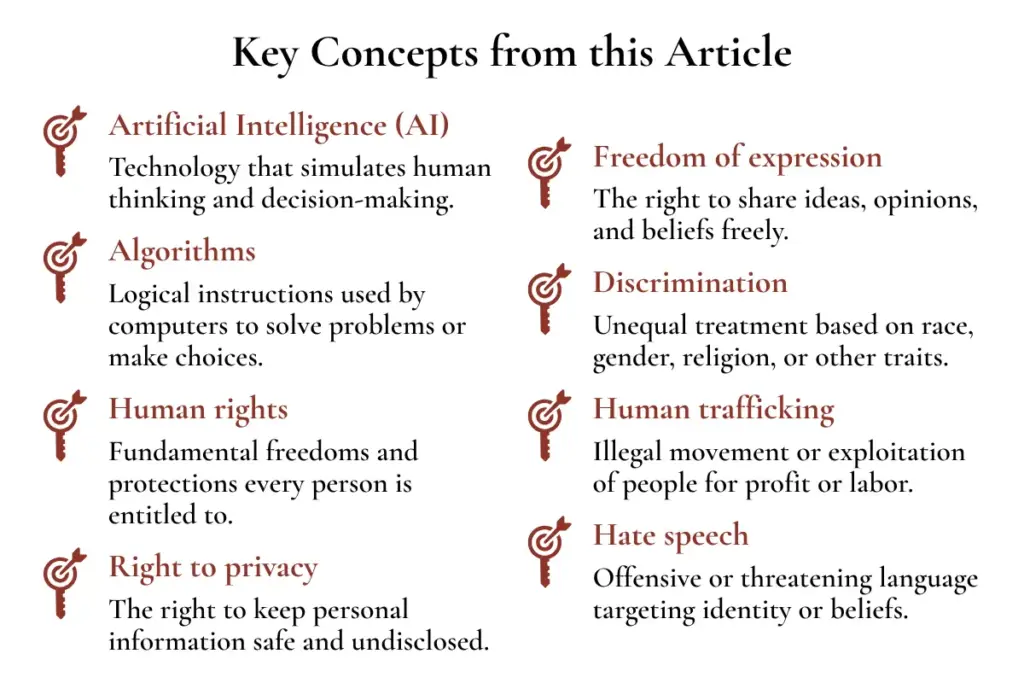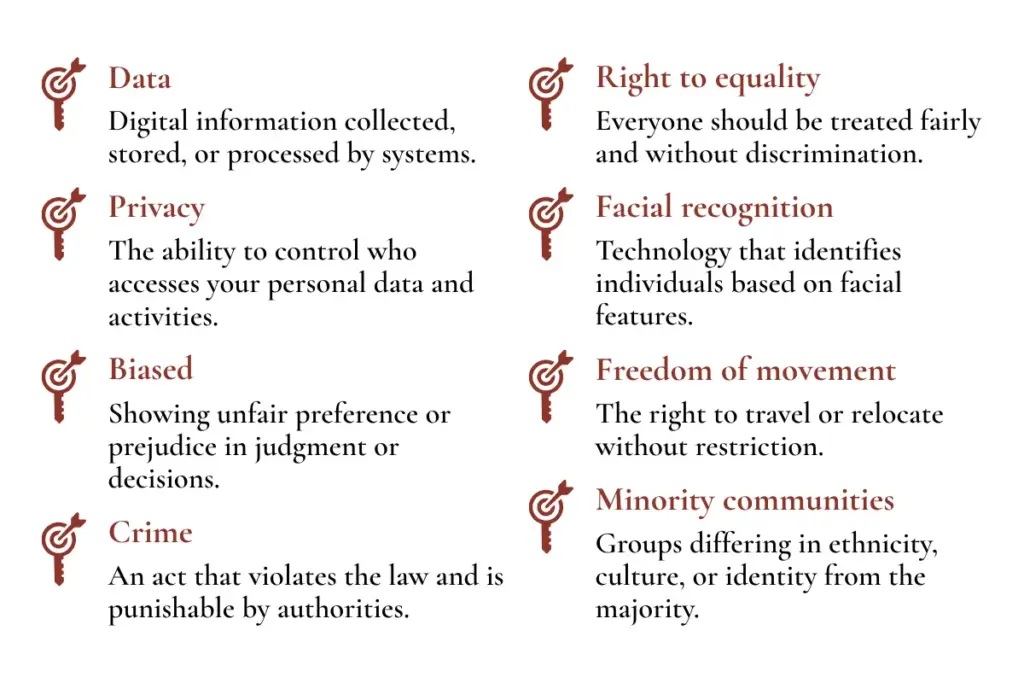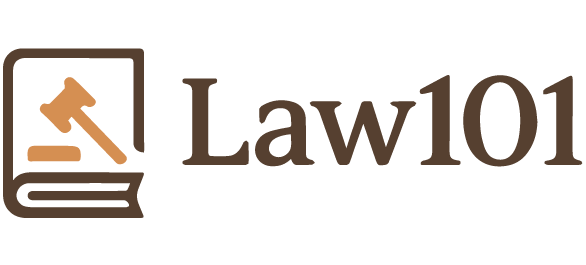Artificial Intelligence (AI) is shaping the world we live in. From social media algorithms deciding what we see, to AI systems helping doctors diagnose diseases, technology is becoming part of our everyday lives. But as AI grows more powerful, it also raises big questions about human rights – questions that governments, companies, and citizens need to answer.
The Connection Between AI and Human Rights
Human rights are basic freedoms we all have: the right to privacy, freedom of expression, protection from discrimination, and many others. AI can help protect these rights – for example, by using data to spot human trafficking or fight hate speech online. But it can also threaten them if not used responsibly.
AI works by collecting and analyzing massive amounts of data. This data often includes information about people – what we search, where we go, what we like. If this data is misused, our right to privacy can be violated. AI can also make decisions about people’s lives, like predicting who might commit a crime or deciding whether someone gets a job. If these systems are biased or wrong, they can lead to discrimination and unfair treatment, violating our right to equality.
Examples of AI and Human Rights Issues
One major issue is surveillance. Some governments use AI-powered facial recognition to track citizens in public places. While this can help catch criminals, it also means that innocent people may be watched every day without their consent. This challenges the right to privacy and freedom of movement.
Another issue is algorithmic bias. AI learns from data – but if that data reflects unfairness in society, AI can repeat or even worsen those biases. There have been cases where AI recruiting tools favored men over women or where predictive policing targeted certain minority communities. This goes against the principle of non-discrimination and fairness.
Finally, freedom of speech can be affected by AI moderation tools. Automated systems can wrongly remove posts or silence certain voices, limiting people’s ability to express their opinions online.
Finding a Balance
The challenge is not to stop AI, but to make sure it respects human rights. Many organizations and experts are working on ethical AI – technology that is transparent, fair, and respects our freedoms. Governments are discussing new laws to make sure AI systems are held accountable when they harm people.
Young people have an important role to play in this conversation. By learning about technology and human rights, asking tough questions, and joining civic initiatives, you can help shape a future where AI supports, not threatens, human dignity.
Conclusion
Artificial Intelligence brings both opportunities and risks for human rights. It can help us solve global problems – but only if we ensure that fairness, privacy, and equality come first. The future of AI is not just about machines; it’s about the kind of world we want to build for everyone.




